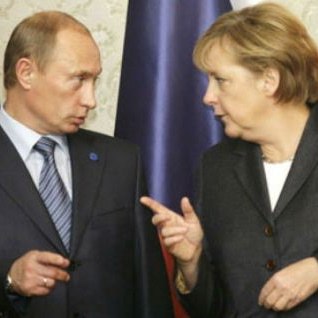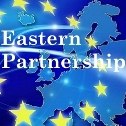Perhaps the best explanation for the proverbial Russia-centrism in German foreign policy is Berlin's excessive expectations of Russia in recent years. Nowadays, however, Germany faces hard challenges in its policy toward Russia. The challenge lies in dealing with three dissimilar Russias: the Kremlin's officialdom, the anti-Putin opposition, and an emerging nationalistic Russia (which is much lesser known in Europe in comparison with the other two.)
At a recent research seminar held at the Free University in Berlin called "The Russia – Germany (Dis)connections: Multidisciplinary Facets," Stefan Meister of the European Council on Foreign Relations unequivocally admitted that "the Europeanization paradigm is over" for Putin’s Russia. Conflicts with Europe abound and even technical disagreements have gone political, as illuminated by a legal trial against Gazprom in the European Union. Sometimes even without any political issues at stake, there may still be strong disconnections. Examples include the divergent attitudes between Berlin and Moscow on shale gas exploration, environmental protection, and energy saving technologies.
It is not hard to find other evidence of what was dubbed in a recent study of Friedrich Ebert Stiftung as an "Ice Age" scenario for bilateral relations. SWP, a leading foreign policy think tank in Berlin, has recently placed Russia in a category of challengers and not as strategic partners, as many in Moscow may apparently wish. The German Foreign Office has recognized problems with financing the St. Petersburg Dialogue, which proves that corporate business has scarce incentives to invest in political engagements with the Kremlin. On issue of visa liberalization, the German position has tightened and Berlin does not seem to any longer support the dubious idea of starting visa facilitation with Russia. In addition to all this, prosecutors in the trial of Russian political prisoner Mikhail Khodorkovsky have recently accused Hamburg University Professor Otto Luhterhandt of using biased legal expertise in Khodorkovsky’s trial and are eager to interrogate him.
Against this background it seems obvious that Russian president Vladimir Putin faces serious problems with legitimizing his policies internationally and it is clear that Germany is increasingly reluctant to assist him with rectifying the reputation of his regime in Europe. As Felix Hett of Friedrich Ebert Stiftung nicely put it, “Putin is a media product designed for the Russian market, but his image does not work in Germany where he is often the subject of irony.” Other voices have added that Putin is an empty media product and that while he might look good domestically in the areas of moderation and mediation, in Germany it remains obscure exactly whom he mediates and for what.
All in all, it seems that many Germans are fed up with personality politics. Indeed, the problem is not Putin himself, but rather the complex transformations within Russian society marked by growing nationalism and xenophobia. This was the main topic of discussion in a conversation I had with German and Russian colleagues at a seminar called "Russia and Germany: Chances and Borderlines" which was recently held at the Institute of Peace Studies in Hamburg. The discussion confirmed that the demand for more realistic approaches to Russia is on the rise in Germany. It is the language of realism that might illuminate the limits of the concept of mutual interests seeing as Putin's system does not even meet German economic expectations and that this may validate some of the ongoing disappointment of German investors in the Russian market.
Yet there is another side of the coin. Some German experts blame German elites for adapting to Russian local practices of shadow economy and for engaging in close transactions with Russia. This fleshes out some problems with the "Wandel durch Handel" rhetoric that often raises more questions than gives answers.
In this situation a lot depends on how Germany's Russia discourse will be structured in the nearest future. The Vilnius summit of the Eastern Partnership can either be portrayed as a political defeat for the EU (and hence of the German – Polish axis) or as a chiefly technical element of a long-term bargaining plan with post-Soviet states. The rise of nationalism all across Russia can be used to portray Russia as a country deviating from the European principles of tolerance and diversity, or, alternatively, it can pave the way for including Russia in the larger trend of nationalist resurrection that currently spans across much of Europe, including Hungary, Greece, Denmark, France, Slovakia, and other EU member states. Russia's regime can be dubbed as either pre-modern or can be referred to as a case of a "post-modern dictatorship" with performative components merging with draconian security measures, as exemplified by the Sochi Olympic project and the preparations for the 2018 FIFA World Cup.
Strategically, Germany might be interested in raising the price for current disconnections that Moscow will inevitably have to pay due to its growing reluctance to socialize in the international society of Europe. Ideally, Germany's Russia policy should look for situations when it will be Moscowand not Berlinwho will be most interested in paving new pathways for interaction. By the same token, Berlin should definitely keep looking for non-zero-sum-game situations. For this there are unfortunately only –a few possibilities, those being Russia's forthcoming G8 chairmanship, sporting mega-events, or perhaps joint energy projects. For German diplomacy, it is time to be creative.











